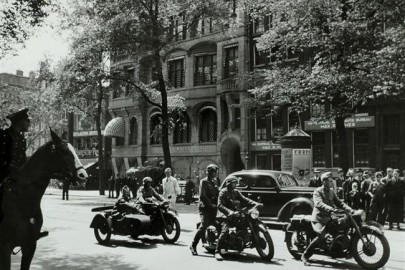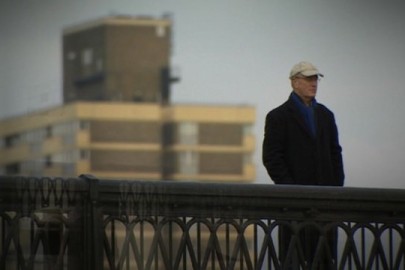When we selected last month’s Dabbler Book Club choice, which you can buy here, we wondered whether the author was able to pull off what sounded like quite an outrageous proposition. Well does he?
The central conceit of Hope: A Tragedy would have made a fine episode of South Park: it is that Anne Frank survived the Holocaust and now lives as a decrepit old hermit in the attic of a rural farmhouse in New York state. She’s still writing too, under the delusion that her Diarysold so many million copies because of her literary talent rather than her tragic demise. If that idea makes you laugh, you’ll probably enjoy this book. If it offends you, you probably won’t; and if it both makes you laugh and slightly offends you, then that’s probably the reaction Shalom Auslander is aiming for.
Auslander is clearly a funny man, and clever too in the way that nasty, alcoholic stand-up comedians are clever. His novel shares the traits of a good stand-up routine, with a series of thematic strands and recurring jokes. These include the protagonist Kugel’s morbid obsession with the famous last words of historical figures (he also keeps a notebook of his own potential final utterances), much scatology, and the cheerfully nihilistic arguments of a psychologist who believes that the root of all evil is optimism. Optimism is Kugel’s enemy, personified by his successful scientist/philosopher/author brother-in-law, the unsubtly-named Pinkus Stephenton, whose bestseller’s title is, brilliantly, You’ve Got to Admit, It’s Getting Better, A Little Better All the Time.
Kugel also has a monstrous live-in mother, who believes, erroneously, that she is an Auschwitz survivor. This leads to more bleak farce which, again, is funny, but while Auslander tiptoes up to a serious exploration of how Jews can deal with the psychological burden of the Holocaust several generations on (and incidentally it is inconceivable that a non-Jew could have got away with writing this novel), he never really tackles it: just when you think something truly profound is about to be said, Auslander lets it fizzle out with another set of fart gags.
So Hope: A Tragedy is a funny book but not a great novel. It’s also too long – a fine novella is diluted with repetition and the central character is too unlikeable to sustain interest. A better or more ambitious novelist might have cut this draft in half and then lengthened it by interweaving Kugel’s story with another character’s perspective or perhaps an extended account of Anne Frank’s escape to America, which is here given just a few (rather brilliant) pages. In fairness, Auslander might yet become that novelist. Hope reminds me of reading Portnoy’s Complaint or The Rachel Papers – funny, memorable and pretty neat, and possibly hinting at a talent that could go on to create much more ambitious works. Whether Auslander goes on to emulate Roth or Amis remains to be seen, but if Matt Stone and Trey Parker are thinking of retiring and need someone to carry on the South Park franchise, they need look no further.
Dabbler Book Club member Graham Kerr: After reading the first few pages of Hope I was reminded very strongly of Woody Allen’s essays in which to comic effect he muses on his many neuroses centred on ‘the meaningless of life’. A few pages later and the Coen brothers’ movies sprang to mind, especially ‘A Serious Man’.
Does this matter? Not at all, I can think of no higher praise. Any novel that has a rather crabby Anne Frank writing her memoirs in the attic is going for a high-risk strategy. Will we think the author is brave or downright unpleasant? The main protagonist Solomon Kugel is looking for a peaceful life but one of the 20th century symbols of suffering is tap taping away in the attic writing her own story.
This is coupled with a mother who likes to believe she lived through the Holocaust – she didn’t, and Kugel’s analyst Professor Jove, the pessimist’s pessimist who believes optimists are delusional; they are the ones who start wars.
Auslander includes all sorts of social concerns to run before Kugel’s tragicomic personality. The abiding feeling at the end of the book is that history isn’t a closed book but is messy and forever crashing into the present like an unwelcome guest. It doesn’t give us lessons but is one stride in front of us dropping the banana skins.
This is an uncomfortable read but as Professor Jove would say…











I suspect that Mr. Auslander spent a bit of time considering Philip Roth’s novella The Ghost Writer, in which the young writer Zuckerman imagines that the older writer’s young assistant/muse is Anne Frank. I haven’t read it in 30 years, but I remember it as quite entertaining.
Thank you for your article.Much thanks again. Really Cool.